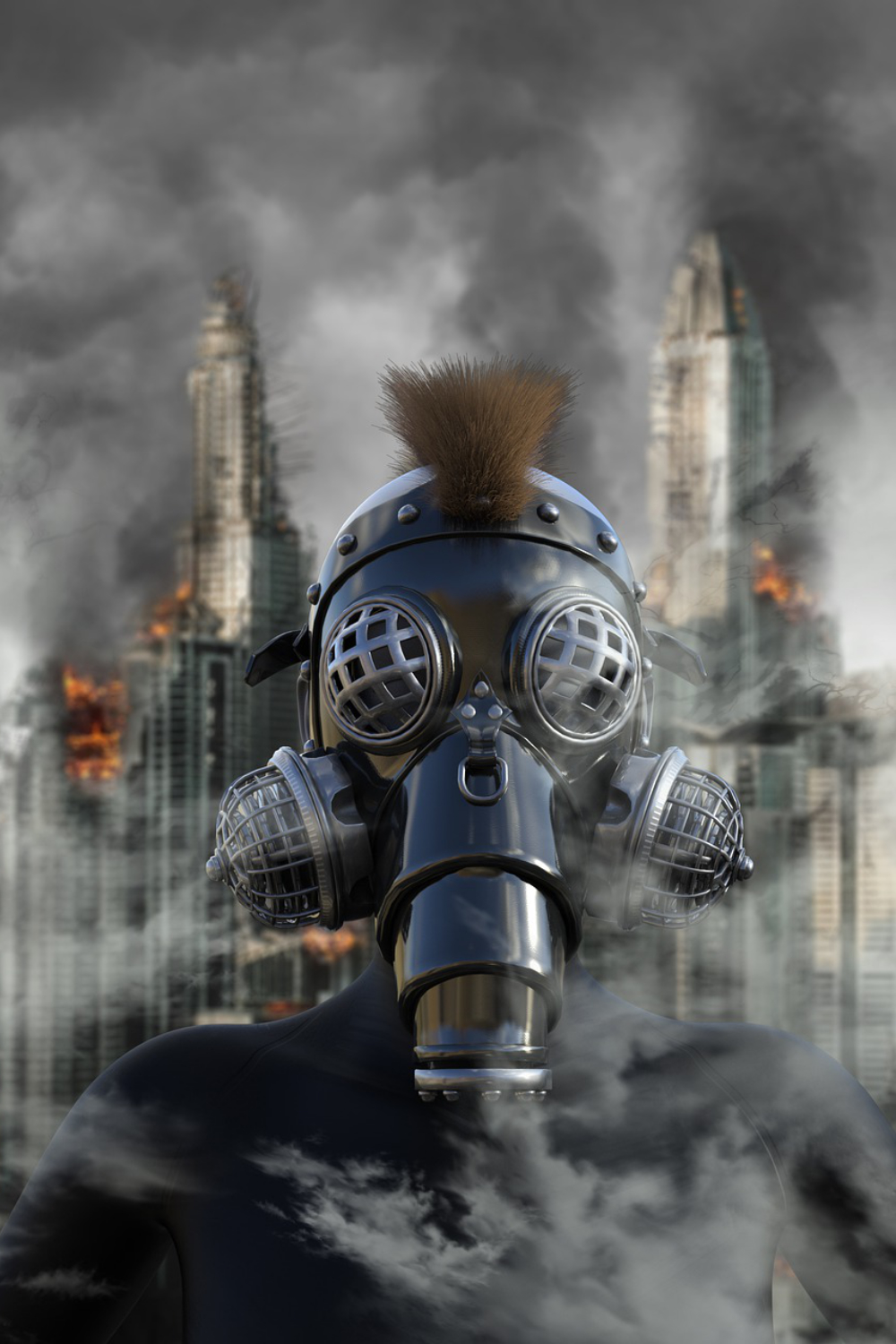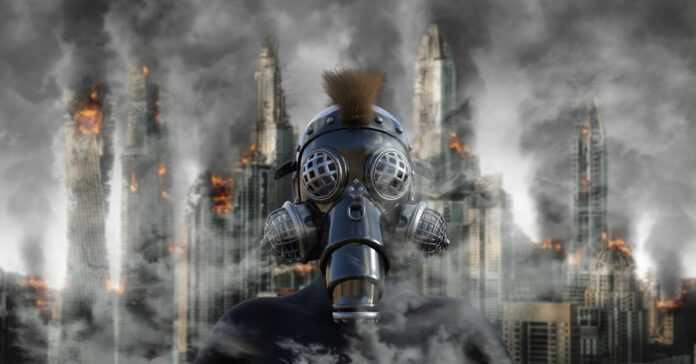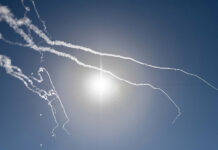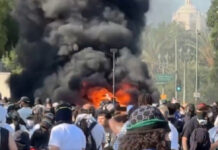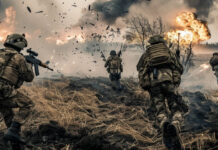Serious preppers plan for a devastating scenario in which the SHTF so badly that modern life, our society, and our culture undergoes and rapid decline and stays ugly for a good long time. We’re talking massive disruptions that result in a breakdown of society, a loss of the rule of law, and the death of billions.
As preppers, our desire is to survive, to protect ourselves and our loved ones, to weather the storm, and to someone how come out alive on the other end, regardless of whether that is in six weeks, six months or six years.
Everyone has their favorite scenario for the end of the world as we know it (TEOTWAWKI.) For the purpose of this article, it doesn’t matter how the end happens and whether it is fast or slow. What we’re going to do is look at possible roles or jobs people will be doing after the immediate disaster is over. We put these out there as a planning tool, so you can think about and prepare for your role before disaster strikes.
Please do not think that each person must assume one and only one role. There will be overlap, redundancy and in some cases – like a large harvest or when under attack – everyone must join in to get the job done.
Here are some obvious possibilities:
Food Related
Food related jobs will be among the most important because survivors will need a steady supply of nutritious food. Just as early man spent much of its time and energy providing and preserving food, so too will those of us who are knocked out of the modern age and into a darker one.
Food Provider
The role of food provider is going to be critically important after a SHTF calamity. It may also evolve over time. Early one, for example, the food provider might raid abandoned or empty stores, seek out warehouses to break into, glean from nearby abandoned houses, or steal from others. But depending on the disaster, as time passes, there will be fewer resources to plunder.
This is where the farmer, hunter, gather or other provided of food will come to the forefront. Someone who can successfully run a trap line, raise chickens, hunt small or large game, identify and prepare edible wild plants, raise a garden or farm a crop like grains or potatoes is going to be very valuable.
Being a food provider will keep you and your family or team from starving and possibly provide a source of goods for barter.
Food Preserver
In a family or small-group setting, the food preserver will work hand-in-hand with the food provider to preserve the harvest for future use. Curing meat and fish, dehydrating fruits and vegetables, hot water bath canning of fruits and preserves and pressure canning for vegetables and meats will be critical skills that will help preserve a bountiful harvest for a time where fresh food is scarce, whether that is the result of an expected seasonal difference or an unexpected one such as a drought, infestation or other failure.
Food Preparer
This job may be shared between multiple people and there may be overlap between the food preserver and the food preparer. Still, there should be one person in charge who determines serving size and approves the use of fresh and stored foods.
Like the name sounds, the food preparer makes meals, bakes bread, and monitors consumption to ensure that food is not wasted. For preppers who have large stores, the food preparer may also be a quartermaster, responsible for judicious use of stored food products. A key goal here is to make sure that foods are prepared in sufficient quantity to keep people healthy yet not so fast as to cause shortages.
Other Food Jobs
As the situation settles down, other food-related jobs may appear, such as large-scale farming of a single crop, a miller who grinds grains, a merchant who buys and sells food and other goods, a teamster who hauls and delivers crops and foods, an importer/exporter who brings in food from other regions, a butcher, and a baker. This may in turn lead to other jobs such as a tanner, farm hand, horse groom, etc.
Defensive Forces
Unless your survival group is under the protection of a neighborhood militia, works under the auspices of a gang, or is so isolated from other people that minimal defense is necessary, someone will need to stand guard, run patrols, oversee the defenses and otherwise help protect the group or perhaps the community.
Armed Guard
Simply put, the armed guard protects your survival retreat from unwanted incursion by aggressors intent on taking what you have, raping, looting, and pillaging. They can do this overtly, providing a visible deterrent, or covertly, by using traps and triggers that will prevent people from sneaking up on you. They can walk the perimeter of your property or compound, coordinate with other friendlies, and maintain fixed defensive positions.
Depending on the situation, you may have someone standing guard at all times or you may choose to have designated guards who do their normal work but also carry an assault weapon so they can provide some defensive fire power at any time. Obviously, being a guard is not a job for one person and should be shared among the team. In that case, it might be a good idea to have a leader who can train others, assign schedules, determine tactics, oversee the construction of defensive structures, coordinate communications among the team, check loadouts, and set standard operating procedures.
Scout
The role of a scout is to spot trouble before it reaches you so that the survival group is not caught by surprise. While the guard patrols your border and the immediate area, the scout goes further afield, especially areas that are not currently occupied. This could be mountains, plains, or forests. The scout must have the skills of a sniper, including the ability to infiltrate and exfiltrate unobserved. They can also serve as hunters and as predator patrol.
Unlike other roles that may be traded among people, the role of scout should not change so that the scout can notice changes in an area over time. Ideally, the scout coordinates with and reports to the head guard.
In a group with ample man power, the scout might be a two- or even three-person team, in which case they would conduct regular patrols and might range even further than a loan scout. Patrols can also be more aggressive than scouts because they have the benefit of more offensive fire power.
Armorer
In the aftermath of a SHTF even of this scale, everyone in our survival group is going to be armed at all times. Someone has to look out for all those weapons, make sure they are in good working order, conduct preventative maintenance, make sure gear like holsters and slings are in good shape, and help ensure they go bang when the trigger is pulled. That is the armorer’s job. In most cases, it will not be a full time position.
Militia Member
Like the minute men, neighborhoods and enclaves may develop a militia or rapid response team that can turn out in the event of an attack. The militia members would act as a rapid response team and supplement the more professional guards or personnel with actual military experience.
To be effective, militia members would have to train together, share some comms, and be able to trust one another. A militia leader could appoint sergeants and officers to help over sea training, discipline and coordination on the field of battle.
Those who are not in the Militia should still be trained in weapons use and can be part of the Home Guard. They will only be called on to fight when there is no alternative and the enemy is at the gates.
Other
As some degree of normalcy returns, there may be personal guards who travel with merchants, guards who ride shotgun with teamsters, and bodyguards who will accompany you to the market or on other trips to help ensure your safety. As some degree of law and order comes about, deputies or marshals may be appointed to help maintain the peace in a county, village, town or other region. In this case, militia members may become part of a posse or may be deputized to support local law enforcement officials
Craftsmen
Once you can no longer run out and buy what you need to build or repair something, it will have to made by hand or repaired locally. That may take some MacGyver-like skills. People with woodworking, metal working, building, and similar skills will be useful, assuming they have some time to work between growing food and protecting the place.
Smiths, Welders, and Metal Workers
A man with a forge and the tool, materials, and the skill to use it will be very handy indeed. It won’t just be horseshoes and knives people will need. Farm and garden equipment will need to be repaired, saw blades produced or sharpened, and metal cages and gates built. At some point, even nails may have to be made manually. Given enough time, the village smithy with forge, bellows and apprentices might make a comeback.
Welding will also be a useful skill, especially someone with a gas or diesel powered welder mounted on a truck that can make house calls. After the collapse, welding will be pricey and use up valuable fuel resources, but if your wood stove cracks or the blade on your tiller breaks, chances are you won’t be able to replace it.
A lathe, 20-ton press, and other metal working and tool making equipment would also be useful metal working tools. Whether operated by the blacksmith or perhaps powered by a gear or belt system from the miller’s water wheel this could help turn metal gleaned from vehicles and other non-usable modern equipment into valuable products for a pre-industrial revolution culture that lacks electricity and internal combustion engines.
Mechanics
For the first couple of years after a large scale disaster, there will probably be enough fuel available to make small engine repair and automotive mechanics valuable skills. At some point, they may have to transfer their expertise to steam power, water power, or other older technology. In a multi-year or generational collapse, someone who can take the wheel of a non-functional car and build a horse-drawn wagon complete with drum brakes will probably find willing buyers.
Someone with good MacGyver-like skills that can cobble something together with leftover parts and items from the scrap heap or who can keep the solar system running and build windmills using alternators from abandoned cars will be worth having on the homestead.
Builders and Handymen
In post-SHTF society, raising animals is going to make a comeback, both for food (livestock) and locomotion (horses and possibly oxen). That means people will need fencing, barns, lean-tos, and chicken coops. People who can build or assist others in sourcing the wood and building the structures will be very useful.
Housing may also need to be improved, with larger porches, outside kitchens, and possibly the construction of sleeping lofts in colder climates. Things wear out and fail even in the best of times. Being able to make repairs with the materials at hand will be a valuable skill.
Other
As society stabilizes, we may see loggers and sawmills pop up, furniture makers, wagon builders, leather workers who make saddles and tack, and so forth.
This list purposely ignores soft goods, like textiles, apparel, footwear, paper and paper products. In general, these needs will come later, while food and defense may be immediate needs. Clothing can be repaired, handed down, and re-used while food is a finite resource that is consumed. There were rich textile industries in the 1800s, and no reason why those would not be reborn once the immediate needs of the survivors are taken care of. From rough homespun and buckskin to fancy wove cloth and tailored clothing, those industries can be rebuilt, starting at the cottage level.
Other skills, such as glass making and glass blowing, grinding lenses for optics and vision correction, chemical manufacturing, making dyes and pigments, printing, and art may all make a return once people are not cold, hungry, and in danger.
Once the Recovery Starts
How fast we recover and what skills are needed will depend on things we cannot predict, like how much infrastructure is destroyed and how much knowledge is lost. For example, a nuclear war may be more difficult to recover from than a comet strike, at least on the other side of the globe. Likewise, it is easier to teach someone to repair a small engine or repair a gun than it is to teach them how to operate a nuclear power plant.
If we look at the worst-case scenario, then refining gasoline, diesel, fuel oil, and AV Gas may be lost arts that are never recovered, rendering everything with an engine doomed. An EMP might knock out electrical generating capacity, damaging most turbines beyond the ability to repair them without replacement equipment that may never be coming. A pandemic or other disaster may kill so many people that critical knowledge is lost. In this scenario, society would be knocked back to the late-1800s, with vestiges of modern life to hint at what is possible. A recovery would take place slowly, over a period of decades, because so much time and energy would be spent surviving that there would be little time left to work towards recovery.
In a best case scenario, outages and losses would be scattered geographically. This would mean some people would be better off than others. Perhaps the northern hemisphere would be largely destroyed but the Southern hemisphere would survive? Or maybe Europe, parts of Asia and Africa would be destroyed by a comet strike, not Australia and the Americas would be left largely untouched.
A Quicker Recovery
In this scenario, those still alive on the ground in the disaster area would indeed struggle to survive, but they could eventually expect some assistance from other countries. Billions might still die, but billions might yet be left alive, while in the first scenario there might only be only be millions of survivors.
If we imagine that much of Europe, the Western two thirds of Asia, the Middle East, and the northern half of Africa were rendered largely uninhabitable, the global economy is so intermingled that it would have a massive negative impact on those continents and countries that survived. But it would still have resources that in time could rebuild and assist the survivors in those regions that were most affected.
Where to Focus Your Preps
In my opinion, the more knowledge and skill you possess as a prepper the better, but start with food production and preservation, followed by self-defense and construction. Your ability to survive the first few years after a massive societal collapse may well depend on your ability to feed and protect yourself and your loved ones.
